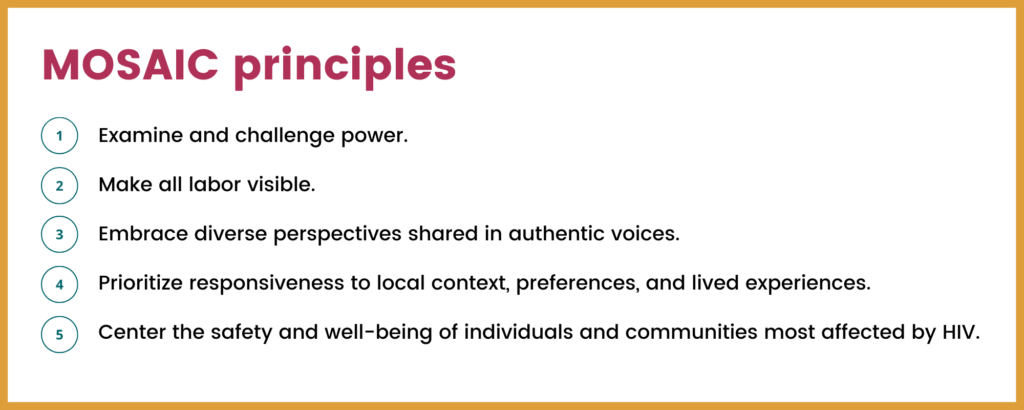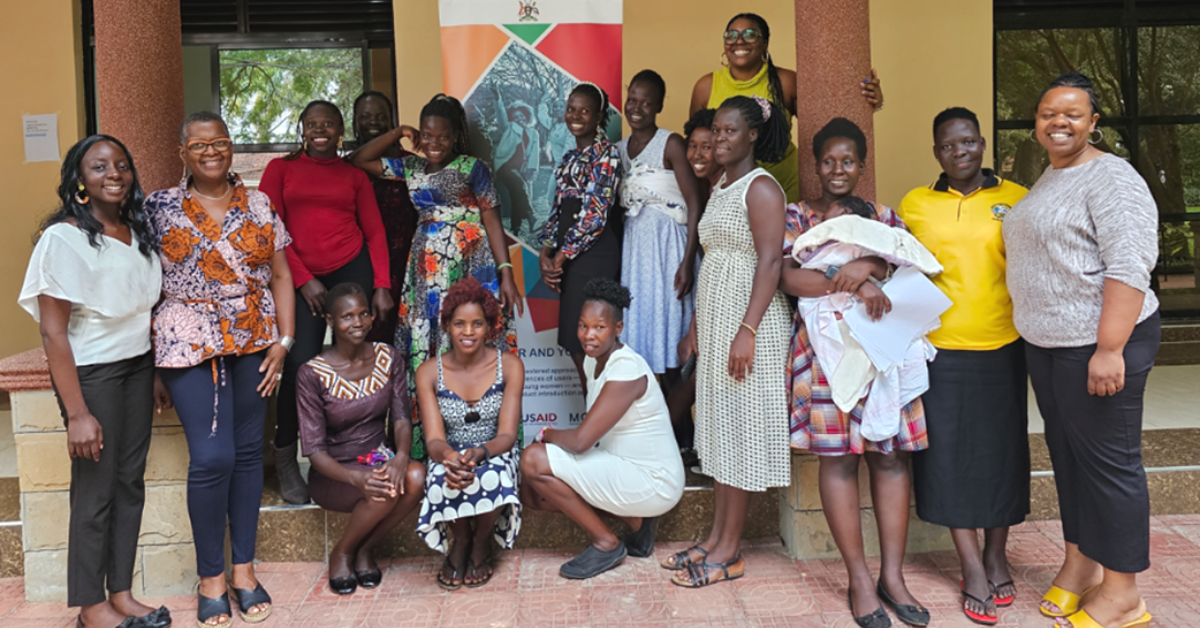Allison Cole, FHI 360
Morgan Garcia, FHI 360
Rubuna Nagai, FHI 360
When the MOSAIC project launched, we developed five aspirational principles to guide our work and hold us accountable to the communities we serve.
Upholding these principles has led us to have difficult conversations, make challenging decisions, and change how we approach our work on the project for the better. Here we describe how we are putting MOSAIC’s principles into practice through one specific project activity – our efforts to improve HIV post-exposure prophylaxis (PEP) uptake and effective use, and the transition from PEP to pre-exposure prophylaxis (PrEP), among adolescent girls and young women.

THE CHALLENGE
PEP is an important intervention for anyone who might be exposed to HIV. When taken within 72 hours of a potential exposure, PEP is highly effective at preventing HIV. This makes PEP an especially useful tool for people who experience sexual assault, as well as those who might be exposed to HIV during consensual sex or through their work. Adoption and completion of PEP are low among participants in the DREAMS program in Uganda. At the same time, peer educators globally have shown great promise in improving PrEP uptake and use among adolescent girls and young women. Our donor, USAID, therefore asked us to develop a tool to train DREAMS mentors to support their peers to use and complete PEP when they need it and—if motivated to take up PrEP—support them through the PEP-to-PrEP transition.
THE APPROACH
PEP uptake is often closely tied to sexual violence, but PEP access is connected to health care systems. We turned to our principles to determine the best way to engage young people in tackling this challenge. Our first concern, and the principle we seek to uphold above all, is to center the safety and well-being of those most affected by HIV—in this case, DREAMS mentors helping their peers prevent HIV.
With that concern in the forefront of our minds, we leaned into our fourth principle, prioritizing responsiveness to local context, and began with informal conversations with DREAMS mentors in Uganda. Mentors shared excitement about expanding their role to include PEP uptake and use, as well as concerns and anticipated challenges. Following the principle of examining and challenging power, we returned to our USAID colleagues with an updated proposal based on the mentors’ feedback, with changes designed to avoid overburdening them and address the barriers they identified, including the emotional labor involved in this type of work.

Based on the mentors’ input, we designed a holistic approach to engage young women, providers, health volunteers, and government officials in identifying and developing a set of tools—a PEP Resource Package—to support PEP use and the PEP-to-PrEP transition among adolescent girls and young women. We noted that even participating in our co-design process involves discussing sensitive issues and may evoke traumatic memories. Therefore, we also designed our approach to mitigate possible harms among participants in the co-design process, DREAMS mentors and others who may utilize the package, and to the development team. We also acknowledged that the burden of improving PEP uptake and completion should not be placed on DREAMS mentors alone. They will need the support of government officials, providers, and health volunteers to effectively support adolescent girls and young women along the PEP journey.
Our approach to completing this activity includes three phases, and we are currently in Phase 2. Throughout the process, each team member is responsible for looking out for possible harms to each other and our participants. After each phase, there is also time to pause and reflect and to attempt to mitigate and address any potential or actual harm.
LOOKING AHEAD
People are at the center of all MOSAIC’s work. Every year, the project’s teams undertake a self-reflection process to understand and improve our alignment to project principles. While we are constantly learning, we are building our abilities to uphold these principles, as demonstrated through the development of the PEP Resource Package.
Featured Image: The MOSAIC team, Tijuana James (USAID), and DREAMS mentors photographed after the co-design workshop in Gulu, Uganda (Speria Kyoshibire/FHI 360).


